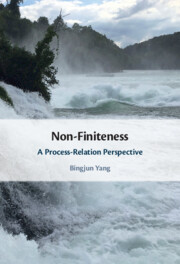Book contents
- Non-Finiteness
- Non-Finiteness
- Copyright page
- Contents
- Figures
- Tables
- Preface
- Acknowledgements
- Symbols and Abbreviations
- Leipzig Glossing Abbreviations
- 1 Introduction
- 2 Non-finiteness in the Literature
- 3 Theoretical Foundations
- 4 Basic Process Relations as One Solution to the Controversy
- 5 Non-finiteness as the Bridge for Process Compression
- 6 Revisiting the Controversial English Constructions with Non-finiteness
- 7 Revisiting the Controversial Chinese Constructions with Non-finiteness
- 8 Conclusion
- References
- Index
3 - Theoretical Foundations
Published online by Cambridge University Press: 21 April 2022
- Non-Finiteness
- Non-Finiteness
- Copyright page
- Contents
- Figures
- Tables
- Preface
- Acknowledgements
- Symbols and Abbreviations
- Leipzig Glossing Abbreviations
- 1 Introduction
- 2 Non-finiteness in the Literature
- 3 Theoretical Foundations
- 4 Basic Process Relations as One Solution to the Controversy
- 5 Non-finiteness as the Bridge for Process Compression
- 6 Revisiting the Controversial English Constructions with Non-finiteness
- 7 Revisiting the Controversial Chinese Constructions with Non-finiteness
- 8 Conclusion
- References
- Index
Summary
Chapter 3 targets the theoretical issues underlying non-finiteness. It is argued that spoken and written language should be distinguished because they require different grammars. With the wisdom in current literature and with the focus on written language, this chapter elaborates on cryptotype and cline, metafunctions as universal categories, process as the basic semantic unit, clause as the basic syntactic unit, ideational grammatical metaphor as the mechanism, two principles in constructional tendency, the difference between rankshifting and embedding, and a new definition of non-finiteness. Thus, the answer is provided to the question: In what way is the finite/non-finite distinction universal?
Keywords
Information
- Type
- Chapter
- Information
- Non-FinitenessA Process-Relation Perspective, pp. 68 - 101Publisher: Cambridge University PressPrint publication year: 2022
